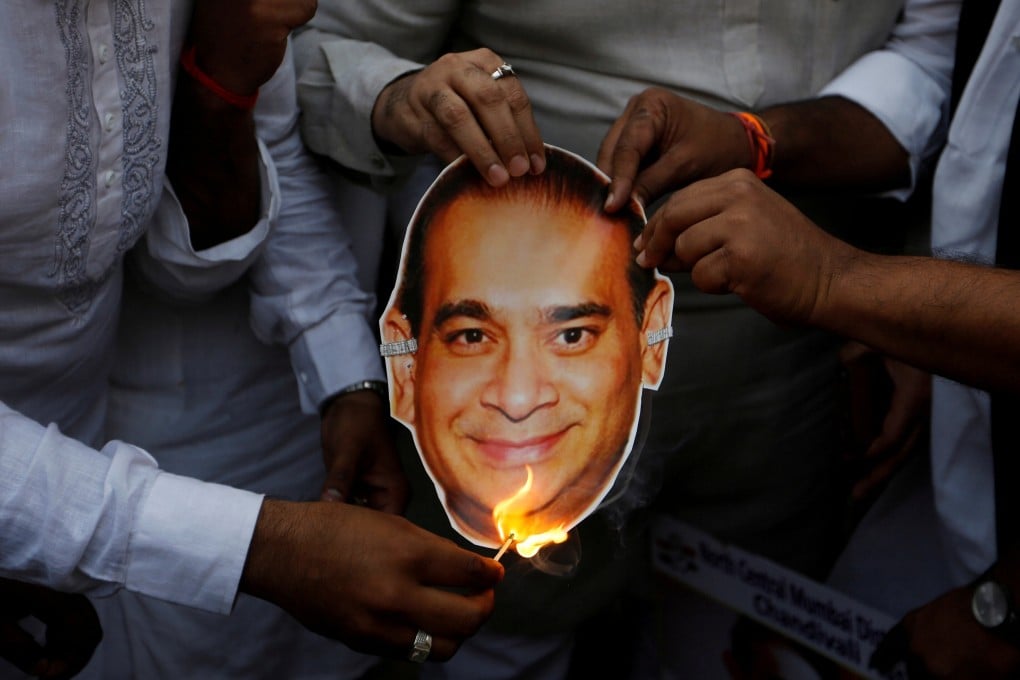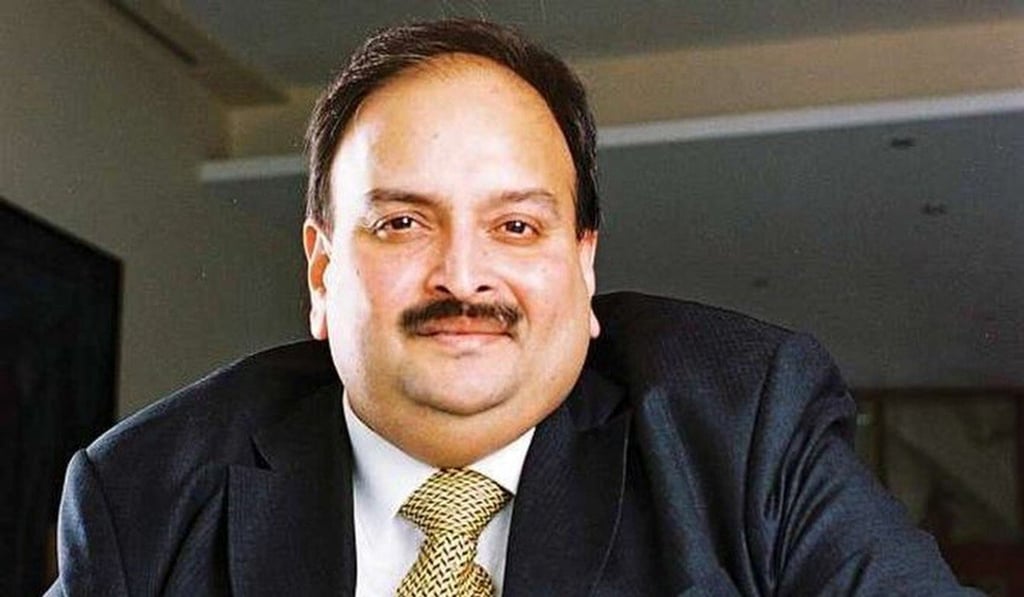Advertisement
India’s fugitive billionaires: how Mehul Choksi, Vijay Mallya, Nirav Modi try to escape justice at home by fleeing abroad
- Jewellery magnate Mehul Choksi’s recent arrest in the Caribbean has once again spotlighted the struggles India faces trying to extradite suspects from abroad
- A lack of treaties has seen New Delhi only bring back two economic offenders over the past half-decade – despite having some 313 active Interpol ‘red notices’
Reading Time:3 minutes
Why you can trust SCMP

Neeta Lalin New Delhi
A frenzied police manhunt in the Caribbean for fugitive Indian businessman Mehul Choksi, who was arrested in Dominica on Wednesday, has once again spotlighted the messy issue of India’s runaway billionaires.
Choksi, owner of defunct Indian jewellery giant Gitanjali Group, had been on the run for more than three years. The 62-year-old is being investigated by India’s Central Bureau of Investigation – alongside his nephew and business partner Nirav Modi – on suspicion of embezzling funds from the state-owned Punjab National Bank in a fraud worth some US$2 billion.
Uncle and nephew both fled India in January 2018, days before details of the scandal involving the country’s second-largest lender broke.
Advertisement

Modi made his way to Britain, where he reportedly claimed political asylum and attempted to lay low for several months before being arrested in March 2019. He is currently fighting extradition to India and has repeatedly been denied bail by British authorities.
Advertisement
Choksi, meanwhile, migrated to the Caribbean tax haven of Antigua and Barbuda, where he had gained citizenship via a government-run scheme that offers investors “golden passports” in return for buying luxury property, starting a multimillion-dollar business or contributing to the islands’ National Development Fund. His arrest in Dominica reportedly came as he was attempting to escape to communist Cuba by boat.
Advertisement
Select Voice
Select Speed
1.00x